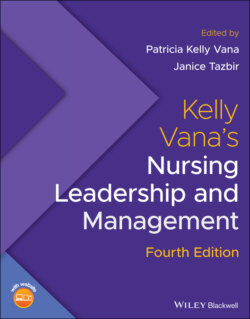Читать книгу Kelly Vana's Nursing Leadership and Management - Группа авторов - Страница 147
Never Conditions
ОглавлениеIn 2008, the CMS identified hospital‐acquired conditions (never conditions) for which they will not reimburse hospitals for a higher DRG payment (i.e., pressure ulcers; fractures, dislocations, intercranial injury, crushing injury, and burns; catheter‐associated urinary tract infections; vascular catheter‐associated infections, object left in patient during surgery, air embolism, blood incompatibility, and mediastinitis after coronary artery bypass graft). Medicare no longer pays hospitals for these conditions (Waxman, 2008). Clearly the nurse of the future must be educated about never events. The term “Never Event” was first introduced in 2001 by Ken Kizer, MD, former CEO of the National Quality Forum (NQF), in reference to gross medical errors like wrong‐site surgery that should never occur. Over time, the term's use has expanded to signify adverse events that are clearly identifiable and measurable, resulting in death or significant disability, and usually preventable. Since the initial never event list was developed in 2002, it has been revised multiple times, and now consists of 29 “serious reportable events” grouped into seven categories (Abimanyi‐Ochom, Jones, & Cheng, 2019). The latest list from 2016 includes:
1 Surgical or invasive procedure events
2 Product or device events
3 Patient protection events
4 Care management events
5 Environmental events
6 Radiological events
7 Potential criminal events
A complete listing, including the subcategories, is available at www.qualityforum.org
